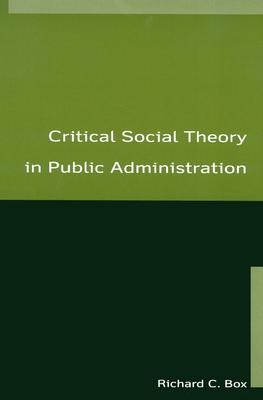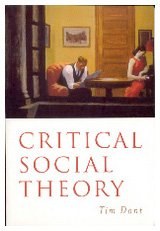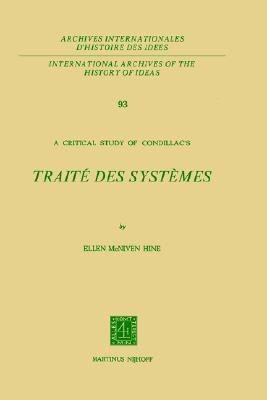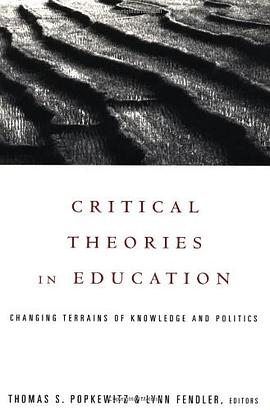

具体描述
An introduction to the critical theory of the Frankfurt School, providing an assessment of thinkers such as Pollock, Marcuse, Horkheimer, Adorno, Neumann, Lowenthal, Fromm, Kirchheimer and Habermas, and the political and intellectual context in which they worked. The account considers the political context of the formative work of the School against the background of the Weimar Republic and of Nazi Germany. It contrasts this with the very different background of 1950s Germany in which Habermas embarked on his academic career, and goes on to discuss the enduring relevance of critical theory to the contemporary political agenda. In particular, Stirk illustrates the continuing validity of the Frankfurt School's criticism of positivist, metaphysical, and, more recently, postmodernist views, and its members' attempts to incorporate psychological perspectives into broader theories of social dynamics. He assesses the School's contribution to key areas of contemporary debate including morality, interest, individual and collective identity and the analysis of authoritarian and democratic states.
作者简介
目录信息
读后感
评分
评分
评分
评分
用户评价
我必须坦诚,这本书的阅读体验是两极分化的。一方面,它提供了无与伦比的理论深度和分析工具,对于那些已经对某一特定思潮有基础了解的学者而言,这本书无疑是一次知识的盛宴,因为它将不同学派的观点进行了富有洞察力的对话与张力呈现。然而,对于刚入门的读者来说,这本书的门槛高得有些吓人。作者似乎有一种“内在读者”的假设,即读者已经掌握了大量的特定术语和历史背景,导致许多关键的过渡部分缺乏必要的铺垫和解释。我经常需要停下来,在网上搜索那些一笔带过的理论家的名字和他们核心的观点,才能勉强跟上作者的论证链条。此外,书中引用的原始文本片段有时过于冗长,虽然是为了支持论点,但确实打断了阅读的流畅性。它更像是一份给圈内人的宣言,充满了只有“内部人士”才能完全领会的共谋性。尽管如此,对于那些愿意投入时间和精力去“破解”它的读者来说,它提供的思维武器是极其强大的,能够显著提升你分析复杂社会现象的穿透力。
评分从出版物的美学角度来看,这本书的装帧设计透着一股克制而高傲的气质。封面的材质选择了一种略带纹理的哑光纸张,手感沉稳,没有丝毫浮夸的印刷光泽,这与内容本身的厚重感形成了完美的呼应。字体选择上,正文采用了经典的小号衬线体,保证了在密集排版下的可读性,而那些关键的理论术语或引文则会使用斜体或加粗来突出,这种细微的视觉区分极大地帮助了阅读时的信息抓取。装订非常结实,一看就知道是能经受多次翻阅和重压的耐用品,这对于需要反复查阅的书籍来说至关重要。书脊的处理也很讲究,即使是平摊在桌面上,也不会出现那种让人不适的弯折感。当然,如果说有什么小小的遗憾,或许是索引部分的处理可以更细致一些,对于如此庞杂的体系来说,一个更详尽的主题索引能让查找特定概念的效率大大提高。但总体而言,这本实体书的制作水平,完全匹配了其内容的重量级地位,它散发出的那种“经典学术著作”的气场,是其他轻量级读物无法比拟的。
评分读完全书后,我感觉自己像经历了一场思想上的高强度马拉松,大脑皮层几乎要被榨干了,但收获同样是巨大的。这本书最令人称道之处,在于它那股不妥协的批判精神。它没有试图提供任何简便的答案或安慰性的结论,相反,它撕开了许多我们习以为常的社会运行的“默认设置”,将其置于显微镜下进行无情的审视。作者的行文风格极为犀利,充满了尖锐的反讽和挑战性的设问,读起来让人时常感到不适,但正是这种不适感,驱使我不断反思自己既有的立场。特别是在讨论到文化霸权和意识形态建构的那几章,简直是醍醐灌顶,我开始重新审视那些我从未怀疑过的社会规范和价值体系,意识到它们是如何精巧地服务于特定的权力结构。这本书的结构安排也很有匠心,它并非线性推进,而是采用了一种螺旋上升的辩证方式,每当我觉得理解了某个核心概念时,作者总会引入一个新的维度将其复杂化,迫使读者回到起点进行更深层次的思索。这无疑是一部挑战惰性思维的力作,如果你期待的是轻松阅读体验,那可千万别选它。
评分这本书的封面设计真是引人注目,那种深沉的蓝配上醒目的白字,立刻就给人一种严肃又具有挑战性的感觉。我拿到手的时候,首先被它的厚度镇住了,这绝不是一本能让人在咖啡馆里轻松翻阅的读物,更像是一部需要投入大量精力和时间去啃食的学术巨著。内页的排版清晰,注释详尽,看得出作者在资料搜集和论证的严谨性上下了极大的功夫。我注意到,它在开篇就设定了一个相当宏大的议题框架,似乎试图打通几个看似疏离的领域,比如从某个特定的哲学流派出发,然后迅速转向对当代社会结构中权力运作方式的解构。这立刻激发了我的阅读兴趣,因为它承诺的不仅仅是理论梳理,更是一种批判性的视角重塑。尽管内容本身是晦涩难懂的哲学思辨,但作者通过一系列精妙的案例引用,试图将抽象的概念与我们日常感知到的社会现象连接起来,这种努力值得肯定。我花了整整一个周末的时间才勉强消化了前几章的概念,深感这需要我不断地查阅其他相关领域的辅助读物才能真正把握其精髓。总而言之,从物理质感到内容雄心来看,这是一部份量十足、不容小觑的严肃学术作品,它要求读者以最高的专注度去对待。
评分这本书最让我印象深刻的,是它那种跨越学科边界的野心和最终达成的某种综合性。它不仅仅是停留在对经典理论的解读上,而是将它们激活,用于剖析当下最前沿的社会议题。比如,作者在探讨数字监控与后现代社会焦虑的交织时,竟然能巧妙地援引了某位早期批判理论家的著作作为分析的基石,这种古为今用的能力展现了极高的学术驾驭力。行文的节奏感也是其独特之处,它时而如急流般迅猛,逻辑推导一气呵成,令人应接不暇;时而又像深潭般静谧,要求读者沉下心来,细细品味那些层层叠叠的意义。我特别欣赏作者在行文中保持的那种近乎冷酷的客观性,它似乎不带任何情感倾向地描绘权力运作的机制,这种冷静反而更具震撼力,因为它剥离了所有道德修饰,直指事物运行的本质逻辑。这本书的价值不在于它给你一个答案,而在于它教你如何更有效地提问,如何带着一副全新的、被它重塑过的眼镜去看待周遭的世界。
评分 评分 评分 评分 评分相关图书
本站所有内容均为互联网搜索引擎提供的公开搜索信息,本站不存储任何数据与内容,任何内容与数据均与本站无关,如有需要请联系相关搜索引擎包括但不限于百度,google,bing,sogou 等
© 2026 book.wenda123.org All Rights Reserved. 图书目录大全 版权所有




















